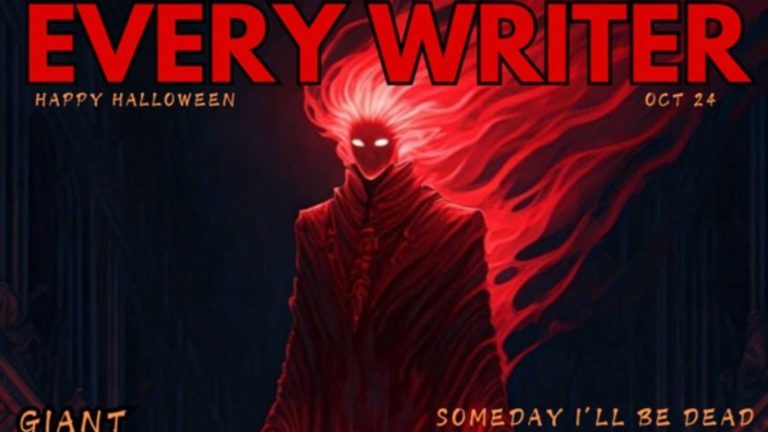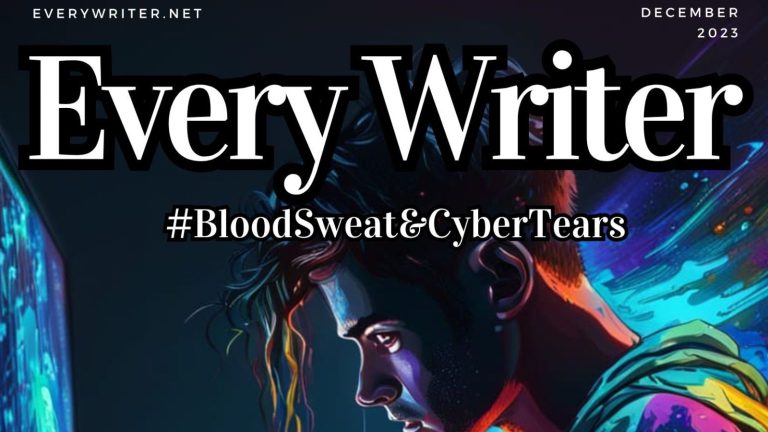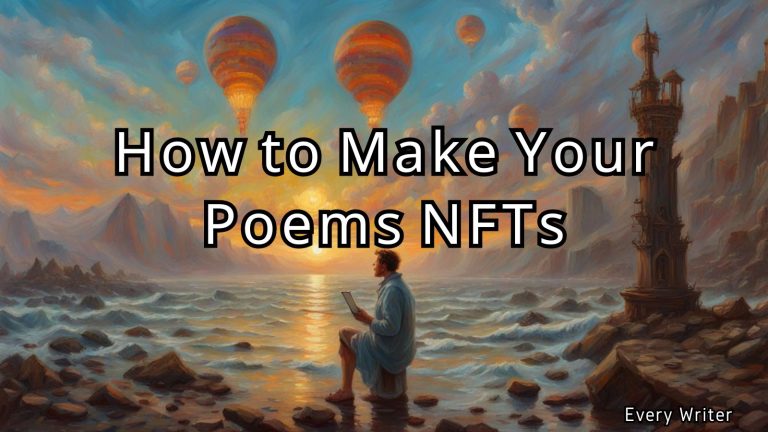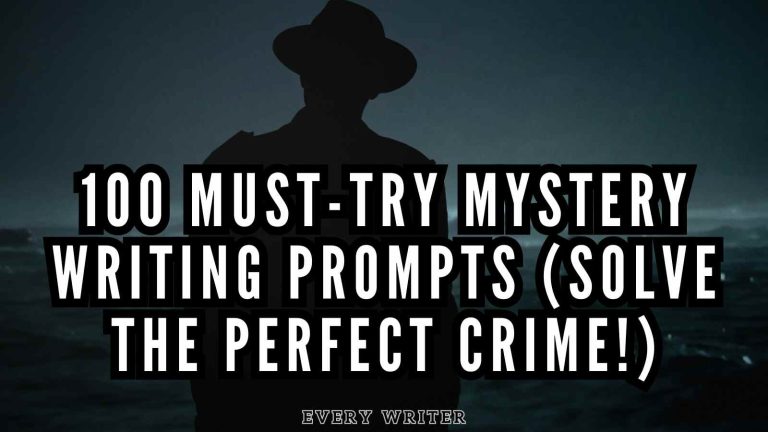I have had multiple questions from writers about marketing over the past couple of months. I also see many writers who don’t seem like they know exactly what to shoot for when they are marketing their books. I’ve been on the web a long time. I have made a good deal of money in marketing, but I’m not pretending to be an expert. I just want to give some friendly advice I have observed from my own experiences and helping and knowing companies and authors over the last 20 years. Every Writer did promotional packages for large companies for over 10 years. Those packages were $1000 per month. Companies like Videoblocks, Book Baby and many more have marketed with us, so I do have some experience working with large successful campaigns. Here is my list of things to remember.
1. Writers are NOT your target audience
Find your target audience. Writers are great at giving support, but they are not great at buying books from their competition. If you are a horror writer, people who love horror are your audience. If you write science fiction, fantasy, romance, or any other genre, you are looking for people who love to read that genre. Now that doesn’t mean you shouldn’t try to market your work to other writers. It just means your core market should be horror lovers. People who love horror are the people you want to market to.
What does this look like? Well you should be part of a writing community, and any marketing you do there is great (most news is good news), but you should also be part of a horror group. It’s much easier to turn horror fans into your fans than it is for you to convert a writer. Find a group of people who are attached to your genre, and then become part of that group. Many times they are not going to like and RT you. You are not going to be popular among them, but they will buy your books.
Market your skills to writers.
2. Many authors do not understand the value of their brand
I see some authors stop at selling their book. They believe their brand is the book and the book alone, but this doesn’t work anymore. Even James Patterson has expanded his brand with Master Class. We are talking about one of the best-selling novelist marketing himself through teaching. That was unheard of 20 years ago.
Growing up, my small town had a bookstore on the corner of main and 1st street. It was pretty big for the town I lived in. They always kept books on hand that the local teachers were reading in class. I’d go in a couple times a semester, and 20 people would be crowding this little bookstore. I thought I was lucky, then I went to the next smaller town and they had one! It was nice, small, but popular. Today, I live in a city 5 times the size of the one I grew up in, and we don’t have a bookstore.
Back in those times publishers could buy prominent spaces for their most popular books. If they wanted Patterson’s new book to sell well, they’d buy a space in the front window, or turned sideways on a shelf. It doesn’t work now. The one giant bookstore I have close to me, is so large you can turn all the books you want, I don’t even go in those isles. Buying a spot on the front of Amazon is just too expensive.
So authors big and small are learning the value of their brand, social media and side sales. Steven King even tweets to me (which I think is cool).
Your brand is everything you are. It’s your book, your writing, your time, your skills, your speaking, your podcasts, your t-shirts, it’s everything. The more value you bring to your audience through your brand the better your book will sell.
3. Be helpful to other writers
Marketing your skills and knowledge to other writers is one of the most valuable promotions you have. Many famous authors publishing today did not have the internet when they were first starting out. They don’t know what it is like to publish and promote a book on their own. They haven’t had the experience of using social media as the only means of selling a book. Stephen King isn’t going to write a book on self-publishing. In this way, you are the foremost expert.
In 2018, it is estimated by several sources that over a million books were self-published. There were many many more writers thinking of self-publishing. So you have a targeted audience. Help other writers. In helping them, you will gain devoted fans. Your skills are worth money, and side sales of podcasts and YouTube about writing, will turn into more books sales.
4. Don’t put yourself above your audience
Death of a celebrity career, generally, is calling themselves famous or better than their audience. I’ve seen George Clooney on Late Night talking about how he shouldn’t be famous. He says he doesn’t do anything, he just acts. I don’t know if Clooney thinks of himself as an everyday person, but he says he does. He says he’s just a normal guy, worth 100s of millions of dollars who large crowds of people chase down the street. You can’t make yourself a celebrity, other people need to do that for you. The minute they THINK you think of yourself of as a celebrity or better than others, they will run from you.
5. There is a minimum for marketing on the web if you want to be successful.
You must have:
1. Social media accounts
2. You have to have a paid website
3. You have to have a mailing list
In all my experience in marketing these 3 things you MUST have to sell. People don’t buy from free websites. Emailing lists are powerful marketing tools (you can create sales funnels!)
If you want to build a writer’s platform, you at very least need these 3 things. If you do not, you probably not going to get very far with your book sales.
6. The more the better (Expand Your Platform):
1. A podcast
2. A Youtube channel
3. Speaking and conferences
All of these will increase your brand. On the web, the bigger the brand usually the better. Each venture should have different audiences, and each venture ups your chances of selling books.
7. Don’t be a jerk.
The internet is a very public place. If you are jerk, even to one person, it can damage you.
8. Don’t be political (unless you are selling political things).
I know you see famous authors being political all the time. Don’t do what they do. Politics in sales is the 3rd rail. Even Stephen King has lost readers because of his political views. You don’t have to take a stand. Your voice isn’t super important in the issues. Stay neutral.
9. Never give your book away for free
Your book always has a value. I see people giving books away for free! I get a little misty about this. If you are going to give your book away, give it away for SOMETHING. You can have my book free if you sign up for my mailing list. You can have my book for free if you sign up for my blog. At least get a sign up. Email is still one of the most powerful marketing tools in cyberspace. If you give your books away, do it for a sign up. Give your book away to lure in more readers or sales, this means you only give book 1 of a series away. You CANNOT give the entire series away and make sales.
10. More than one audience
You need to have different audiences for each venture. If you are on YouTube, it’s ok to market to your Twitter followers, but you need to find a way to get other YouTubers to sign up. YouTube should be a different audience than Twitter. Facebook should be a different audience. Pinterest should be a different audience (Pinterest is amazing at gaining readership by the way don’t overlook this one), and if you are podcaster that still needs to be a different stream of fans. Don’t smash these all together.
11. Presentation is always everything
The web is a visual medium. Do you know how important the cover of your book is? Everything that people see about you is that important. If you do a website, a youtube channel, a mailing list, every one of these are just as important to show well!
This seems too hard. Why even try?
We live in a culture of voracious readers. Our world and culture is eating pages and pages, podcast after podcast, video after video every day. Even though the competition is great the need is great. People want your book. People want your video your website. You don’t have to be a marketing genius, you just have to give people enough opportunity to catch on.
My whole point for writing this list is to say writers have a lot of value. I see writers who are brilliant, and who could help a lot of other writers and make money while doing it, but they don’t know it. This stuff is hard or everyone would do it. I just want to say. 1. Everything you do is valuable 2. Be genuine and helpful and it will pay off 3. It’s an honor and a privilege to read your works, don’t make sharing them the only goal.
If you have any questions, I will do my best to answer, leave a comment below.
- 8 Authors Who Created Literary Masterpieces Keeping Their Day Jobs - March 31, 2025
- Plotter or Pantser? A Writer’s Personality Quiz - March 30, 2025
- 100 Must-Try Mystery Writing Prompts (Solve the Perfect Crime!) - March 22, 2025







Do you do consults? I have what I’m told is a typical problem. I published a memoir (praised by bestselling writers) with a good, small press, and was told I should spend $15,000 in publicity starting two months before the book was published. I didn’t (don’t) have that kind of money and ended up paying around $2,000, which netted me a podcast, a couple of web interviews and one or two book reviews. Marketing insight, gleaned the hard way: When I can get people of a certain age (fortyish or over) to pick the thing up, they love it. Young people find the book “depressing.”
The book was published last January. Can anything be done at this late stage to ramp up sales?